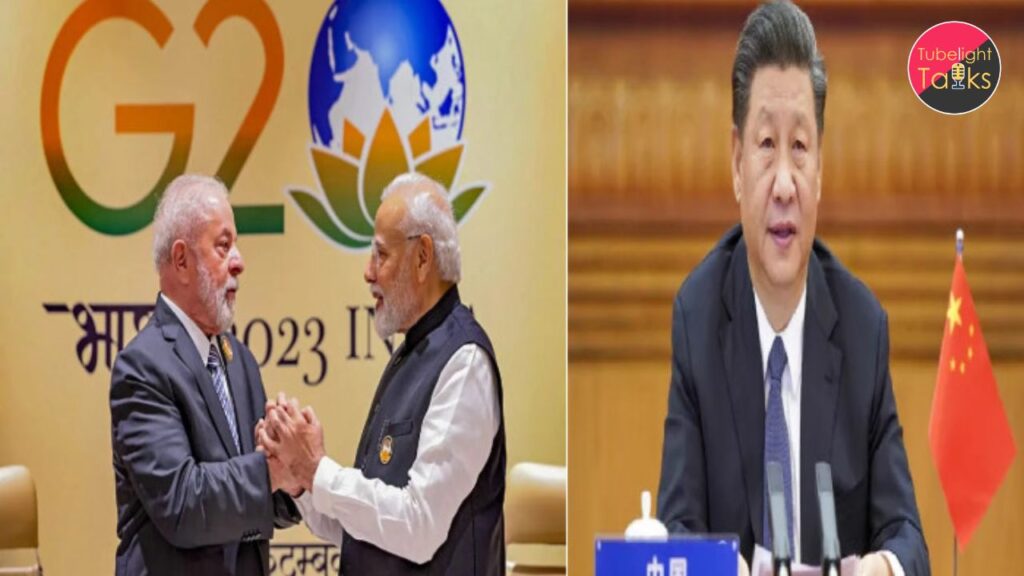Brazil Rejects BRI: Brazil has recently made headlines by officially rejecting participation in China’s Belt and Road Initiative (BRI), becoming the second country in the BRICS bloc to do so after India. This decision reflects a significant shift in Brazil’s foreign policy under President Luiz Inácio Lula da Silva, emphasizing a desire for strategic autonomy while still fostering economic ties with China.
Key Highlights: Brazil Rejects BRI
- The BRI: China’s ambitious project to connect Asia Europe and Africa.
- China suffered a setback in Brazil even before Xi Jinping’s visit.
- Some major factors lead Brazil not to join BRI.
- Brazil’s rejection of the BRI indicates a shift in BRICS dynamics, as its independent stance alongside India.
- Brazil wants to prioritize its national interests without being bound to Beijing’s overarching agenda.
- Spirituality will unite the world in one belt.
Background on the Belt and Road Initiative
Brazil Rejects BRI: The BRI, launched by Chinese President Xi Jinping in 2013, is a global development strategy that aims to enhance regional connectivity and embrace a brighter economic future through building infrastructure and broadening trade links across Asia, Europe, and Africa. It has been characterized by massive investments in infrastructure projects, including roads, railways, ports, and energy projects. However, the initiative has faced criticism for potentially leading to debt dependency among participating countries.
Brazil’s Decision Not to Join the BRI
On October 29, 2024, Celso Amorim, Brazil’s special presidential adviser for international affairs, announced that Brazil would abstain from joining the BRI. This decision was made just weeks before Xi Jinping’s scheduled visit to Brazil on November 20, where he had hoped to showcase Brazil’s participation in the initiative as a key achievement.
Also Read: Understanding Parenting Wisdom: The Balance Between Discipline And Support
Brazil Rejects BRI: Amorim emphasized that while Brazil values its relationship with China, it seeks to engage on its own terms without formal commitments that could compromise its sovereignty or economic interests.
- Strategic Autonomy: Brazil’s leadership aims to create synergies between its domestic infrastructure projects and investment opportunities linked to the BRI without formally entering into an agreement. This approach allows Brazil to maintain control over its strategic economic initiatives while still potentially benefiting from Chinese investment.
- Concerns Over Sovereignty: Similar to India’s longstanding objections to the BRI, Brazil’s decision reflects apprehensions regarding sovereignty and transparency. Brazilian officials have expressed concerns that joining the BRI could lead to unfavorable dependencies on Chinese financing and influence.
Brazil Rejects BRI: Influences Behind Brazil’s Stance
Brazil’s rejection of the BRI is influenced by several factors:
- Economic Priorities: Brazilian officials believe that participation in the BRI would not yield immediate benefits and could complicate relationships with other international partners, particularly in light of upcoming U.S. elections. The potential return of a Trump administration could alter geopolitical dynamics significantly.
- External Pressures: The United States has been vocal about its opposition to China’s expanding influence in Latin America. U.S. Trade Representative Katherine Tai urged Brazil to consider the risks associated with joining the BRI, advocating for a careful evaluation of potential economic dependencies.
- Recent Diplomatic Engagements: Amorim’s recent trip to Beijing aimed at discussing the BRI ended with Brazilian officials reportedly unimpressed by China’s proposals. The lack of compelling offers contributed to Brazil’s decision not to engage formally with the initiative.
Implications for BRICS Dynamics
Brazil Rejects BRI: Brazil’s abstention from the BRI reshapes the dynamics within the BRICS bloc (comprising Brazil, Russia, India, China, and South Africa). While Russia and China continue to support the BRI as a means of enhancing their global influence, Brazil and India’s independent stances signal a potential shift towards greater flexibility within BRICS.
- Reshaping Alliances: This decision may encourage other nations within Latin America and beyond to adopt more cautious approaches regarding large-scale initiatives like the BRI. Countries are increasingly aware of the potential pitfalls associated with heavy reliance on Chinese investments.
- Diverse Perspectives: The differing positions within BRICS highlight a growing diversity of perspectives among member states regarding engagement with China. While some countries may welcome Chinese investments as essential for development, others prioritize maintaining sovereignty and strategic independence.
Future Collaborations Without Formal Ties
Brazil Rejects BRI: Despite rejecting formal participation in the BRI, Brazilian leaders have reiterated their commitment to strengthening economic ties with China through alternative frameworks. This approach allows Brazil to pursue mutually beneficial projects that align with its national priorities without being bound by Beijing’s overarching agenda.
- Targeted Projects: Amorim indicated that Brazil would seek specific projects within the broader framework of the BRI that align with Brazilian interests. This selective engagement reflects a pragmatic approach aimed at maximizing benefits while minimizing risks associated with dependency on Chinese funding.
- Continued Engagement: The Brazilian government remains open to collaboration with Chinese investors on key infrastructure projects deemed critical for national development. This indicates an ongoing willingness to engage economically without formalizing commitments that could limit Brazil’s autonomy.
Conclusion
Brazil Rejects BRI: Brazil’s decision not to join China’s Belt and Road Initiative marks a significant moment in its foreign policy landscape. By prioritizing strategic autonomy and selective collaboration over formal commitments, Brazil aims to navigate complex international relations while safeguarding its economic interests. As global dynamics continue to evolve, this stance may influence how other nations approach large-scale infrastructure initiatives and their relationships with major powers like China.
Saint Rampal Ji Maharaj’s Vision: Uniting the World with One God, One Religion
In a world divided by religions, cultures, and countless beliefs, the dream of global unity often feels out of reach. Nations remain in conflict, and peace seems like a distant ideal. However, Saint Rampal Ji Maharaj brings a message of unity that transcends boundaries. Through his profound teachings and spiritual strength, he inspires a path toward a harmonious world, illuminating the possibility of a united humanity.
Saint Rampal Ji Maharaj’s vision offers hope and guidance for those seeking peace and unity. Discover more about his revolutionary teachings, social reforms, and mission to unite all under one divine truth by visiting www.jagatgururampalji.org exploring the Sant Rampal Ji Maharaj YouTube channel.











Discussion (2)
Brazil shocked china.
This is a good stance by Brazil, No one should join BRI, BRI is a trap made by china.